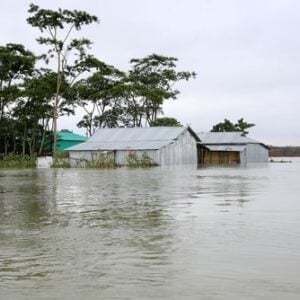More than 150,000 people in Ethiopia’s Somali Region are set to gain reliable access to clean water through a new partnership co-financed by the Children’s Investment Fund Foundation (CIFF) and the United Nations Development Programme (UNDP) under the Groundwater Access Facility for Africa (GAFA) initiative. The 24-month project, valued at over USD 6.2 million, will deploy advanced drilling rigs and solar-powered water systems to establish 20 new boreholes. These systems will serve local communities as well as 34 health facilities and 59 schools across Jigjiga, Dhanaan, Birkot, and Dhagahbour.
To ensure long-term sustainability, the project will provide capacity building for local water utilities, Technical and Vocational Education and Training (TVET) schools, and water technicians, focusing on the operation and maintenance of solar-powered groundwater systems. The Somali Region, home to large pastoralist communities, faces chronic water stress due to complex hydrogeology and low rainfall, with only 42% of households currently having access to improved drinking water sources, well below the national average. By expanding water access for communities and critical social services, GAFA aims to improve health and education outcomes, strengthen livelihoods, and reduce tensions over scarce water resources.
H.E. Mr. Motuma Mekassa, Special Advisor to the Minister of Water and Energy, expressed appreciation to CIFF and UNDP, noting the Ministry’s commitment to supporting the successful implementation of the project. The initiative aligns with Ethiopia’s national water strategy, leverages a decade of hydrogeological research, and builds on UNDP’s extensive experience in groundwater development across Africa.
GAFA was officially launched in Jigjiga in May 2024 and will be implemented with in-kind contributions from the Federal Government of Ethiopia and the Somali Regional State, alongside technical support from World Vision. The project will be led by the UNDP Resilience Hub for Africa and the UNDP office in Ethiopia, in collaboration with the Somali Regional Government. A joint board and technical committee will oversee the initiative to ensure transparency, local ownership, and sustainability. Following a three-month inception period, the first drilling phase is scheduled to begin in November 2025.







